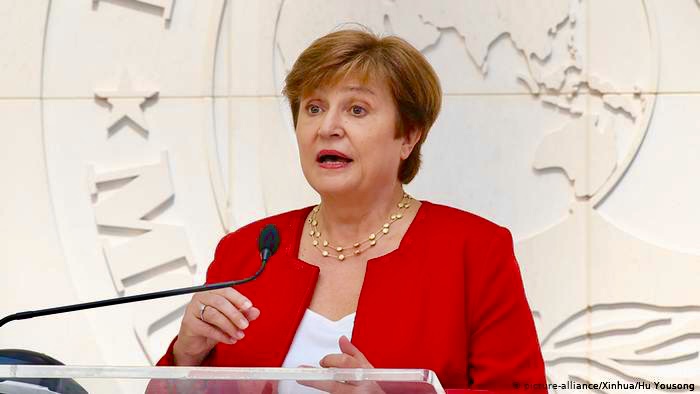One of the most positive pieces of news emerging and frontier markets will receive is the Special Drawing Rights -SDR approval at the recently held Governors board session in Washington. This is effective August 23. According to a press release on the lenders website on the August 02, the Board of Governors of the International Monetary Fund – IMF approved a general allocation of SDR’s equivalent to US$650 billion to boost global liquidity.
___________________________________________________________________________________________________
“This is a historic decision – the largest SDR allocation in the history of the IMF and a shot in the arm for the global economy at a time of unprecedented crisis. The SDR allocation will benefit all members, address the long-term global need for reserves, build confidence, and foster the resilience and stability of the global economy. It will particularly help our most vulnerable countries struggling to cope with the impact of the COVID-19 crisis.”
“We will also continue to engage actively with our membership to identify viable options for voluntary channeling of SDRs from wealthier to poorer and more vulnerable member countries to support their pandemic recovery and achieve resilient and sustainable growth.”
IMF Managing Director Kristalina Georgieva
___________________________________________________________________________________________________
It is about a dry point of construction that the COVID19 pandemic has ravaged economies globally with central banks and fiscal sides throwing resources at the autopsy effects of a health care problem. However the COVID19 has through its mutating variants adversely impacted emerging market sovereigns which has amplified fiscal vulnerabilities leading to weakening central bank positions to stabilising currencies due to reallocation of funding priorities to healthcare at the expense of productive sectors of the economy. COVID has eroded central bank reserve positions as they continue to reign in weakening currencies for price stability purposes. Vaccine rollouts are another area that most developing nations has struggled with on account of frail financing capacities which is for the reason the Washington based lender decided to increase the SDR allocation to assist with absorption of the financing burdens, arm central banks with reserve ammunition and above all seek to help address rising inequalities. Africa’s vaccine status as at August 02 was 1.77% (fully vaccinated) while partially vaccinated was 1.83%) while Asia is at 11.06% (fully vaccinated) with the partial quota being 17.52%.
Astrazeneca vaccines arrive at Lusaka Kenneth Kaunda International Airport on an Emirates Airline. Africa’s vaccine rollout has remained a struggle with rates of just above 2.0%.
For nations like Zambia, the SDR estimated at circa $1.3 billion will come well ahead of an IMF bailout package for which it has made significant strides especially that it is a precursor for successful debt restructure. Most African nations will receive reprieve to help as an economic buffer for the economic malaise induced by COVID19.
SDRs are a critical financing tool developed by the International Monetary Fund (IMF) to support the world’s most vulnerable nations. This internal currency can be traded between countries in exchange for liquidity or cash and can be used to buy medical supplies and food.
In April, G20 finance ministers and central bank governors called on the IMF to allocate an unprecedented $650 billion in SDRs, of which $34 billion would go to African countries, to support the global recovery from the COVID-19 pandemic. Thanks to the G7 members like France that agreed to reallocate their entitlements to developing nations so as to increase their quota’s, a true demonstration of the drive towards narrowing the inequality gaps. The worlds richest dubbed G7 met England earlier in the year to ponder on how to help the world solve its most cortical problems namely the COVID pandemic and climate change.
One key option is for members that have strong external positions to voluntarily channel part of their SDRs to scale up lending for low-income countries through the IMF’s Poverty Reduction and Growth Trust (PRGT). Concessional support through the PRGT is currently interest free. The IMF is also exploring other options to help poorer and more vulnerable countries in their recovery efforts. A new Resilience and Sustainability Trust could be considered to facilitate more resilient and sustainable growth in the medium term.
The article has been written with extracts from the IMF press release shared on the lenders website of August 02.
The Kwacha Arbitrageur

